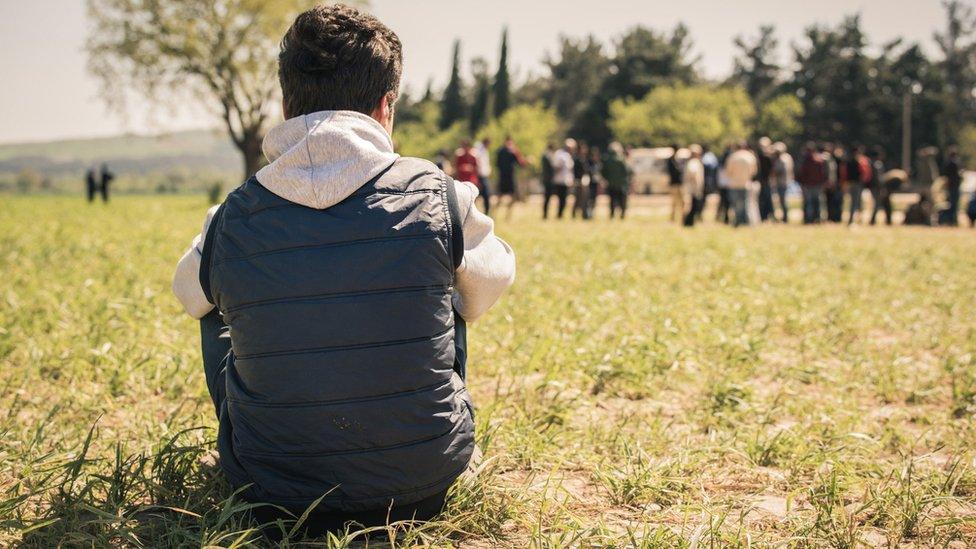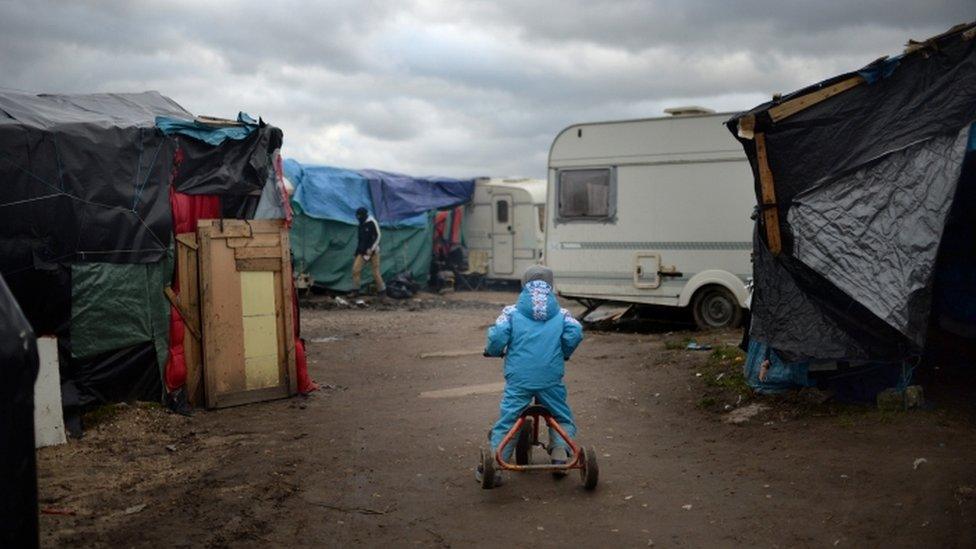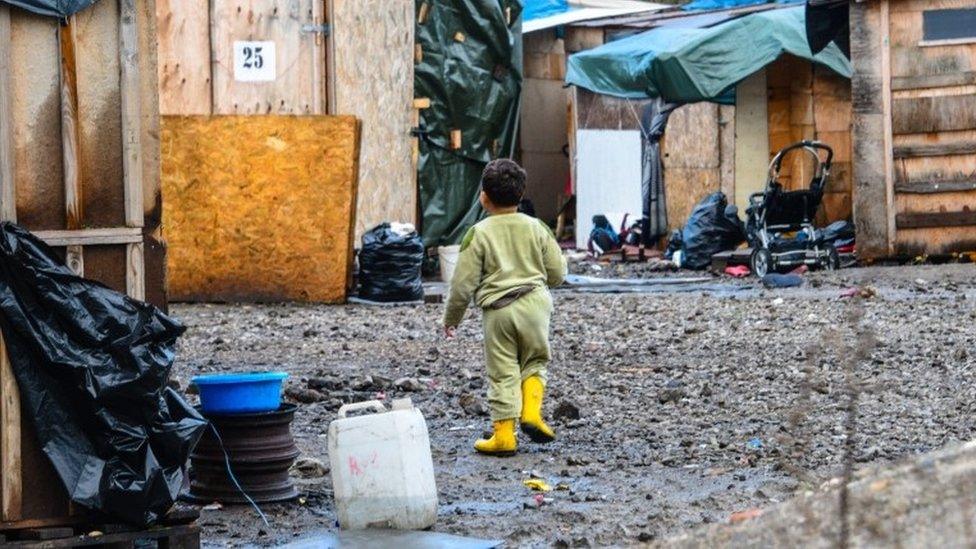Charity loses Dubs amendment legal challenge over child refugees
- Published

Campaigners who were trying to force the government to allow more unaccompanied child refugees into the UK have lost a High Court challenge.
The charity, Help Refugees, argued a consultation process that calculated only 480 children should be accepted by the UK was "fundamentally flawed".
It says more should be accepted under the "Dubs Amendment", to help refugees.
However, High Court judges ruled the government's approach was "sound". Campaigners have said they will appeal.
The Dubs amendment came into force in 2016, after months of pressure from campaigners and members of the public to take children from the "Jungle" migrant camp in Calais.
Designed by Labour peer and former refugee Lord Dubs, it aimed to help some of the estimated 90,000 unaccompanied migrant children across Europe.
But in February this year, the Home Office said it would stop taking children via the scheme from the end of March - and limited the number of unaccompanied children allowed entry to the UK to 350.
Help Refugees launched legal action at the time, arguing that ministers had failed to consult local authorities properly about how many unaccompanied children could be housed.

The Dub scheme was intended to help unaccompanied migrant children across Europe
It had been seeking to force the Home Office to abandon the cap and reopen a consultation process so consideration could be given to allowing more children in.
During a hearing in June, the judges were told that local authorities were meant, under the Dubs Amendment, to let the Home Office if they were ready to take in asylum-seeking children.
Help Refugees argued the Home Office had failed to carry out a full UK-wide consultation.
However, High Court judges Lord Justice Treacy and Mr Justice Ouseley dismissed the charity's arguments.
Their ruling stated that "having considered the criticisms made as to the requirements for a fair consultation we are not persuaded that the claimant's case is made out".
They ruled the Home Office had to fix a number because swift action was needed.
Places needed 'now'
Rosa Curling, the lawyer representing Help Refugees, said the charity maintained the way the Dubs Amendment has been implemented was "seriously defective".
"We are bitterly disappointed by this result," Josie Naughton, founder of Help Refugees Ltd, said, adding that she was proud of the influence the case has had.
"At the time our litigation was issued, not a single child had been transferred to the UK under the Dubs Amendment.
"Transfers began under the pressure of this litigation and under the pressure from campaigners and parliamentarians.
"We've unearthed 130 extra places, which the government eventually admitted it had overlooked.
"These places for children are needed now more than ever. There are young unaccompanied children sleeping rough in Europe completely unprepared for the coming winter."
- Published9 February 2017

- Published8 February 2017
- Published7 March 2017
